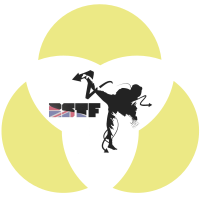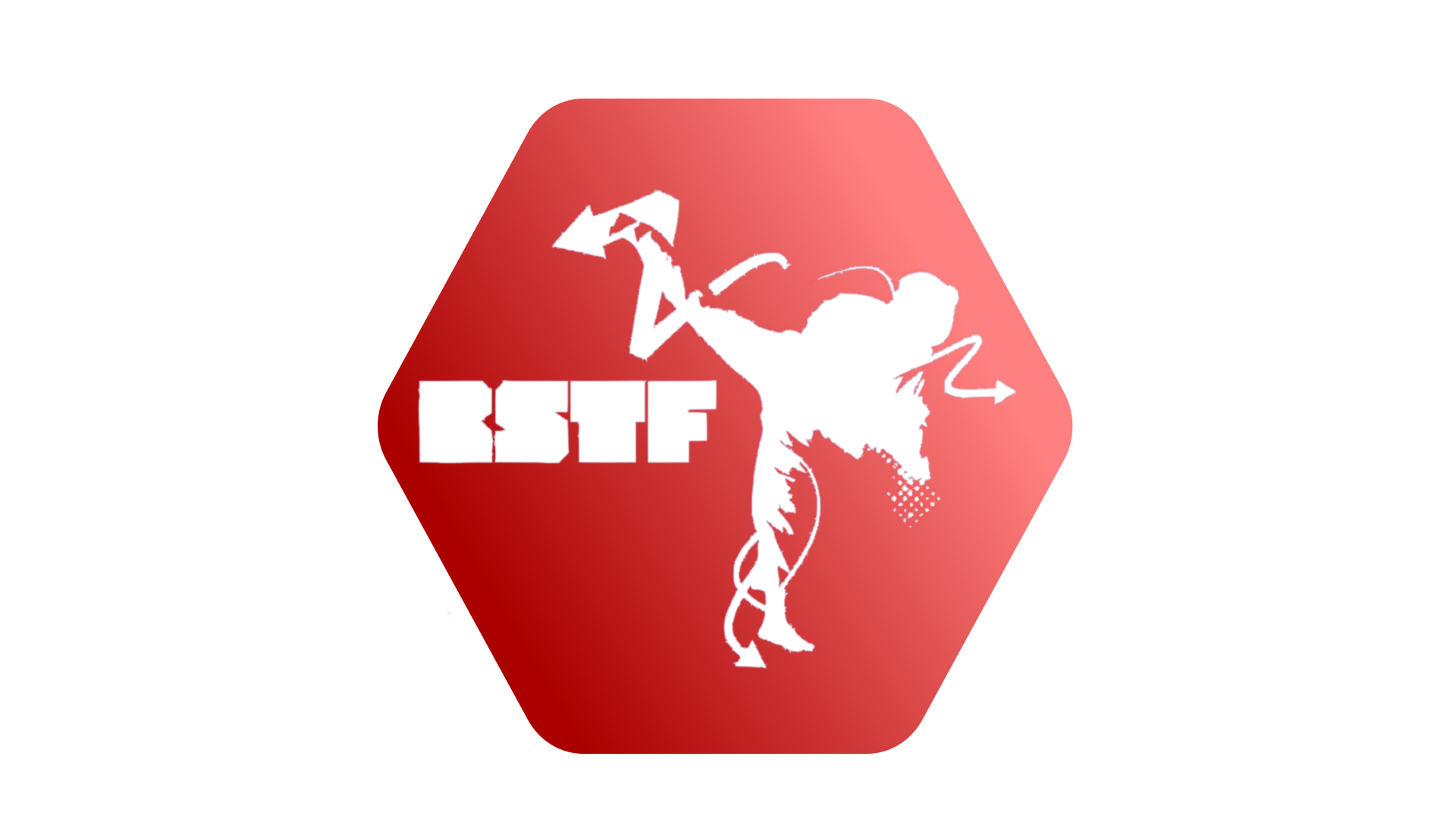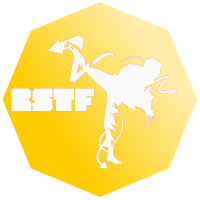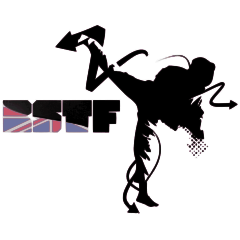
Championships Series General Entry Information
Entries Overview
1. Check your eligibility in the Eligibility and Experience Levels section of this guide
2. Create a BSTF account / renew an existing membership
- To participate in the Student National Taekwondo Series you must be a BSTF member.
- If you don’t have a BSTF account yet, you can create one here.
- Existing members can renew their memberships in their BSTF account.
- Which membership do you need? You can find detailed membership information in the Membership Passes section of this guide. In general:
- If you are competing in an event you need a Student-athlete Pass (A, B or C depending on your grade)
- If you are not competing but are intending to participate as a coach assistant or trainee umpire you need a General Pass
- If you are a club coach you should have a Club Coach membership
- Affiliate type memberships are not eligible to participate in events.
3. Enter an event
- You can enter an event through the BSTF event registration portal. Individual event entry forms are found on each event’s page.
- If you can’t see the entry form options, there may some common reasons:
- You may not be logged into your account
- If you have just created an account, it needs to be approved by a BSTF moderator. This may take up to 2 working days. Contact us if your account has not been approved after this time
- You may not have the correct membership type (e.g. affiliate members are not eligible to enter events)
- You may have already entered/registered for that specific discipline or role
- Please provide all of the requested information for the disciplines you are entering for your entry to be valid.
- Note for some C class athletes: 10th kups are not eligible to enter sparring disciplines. They can however enter all patterns disciplines.
4. Pre accreditation
- Before the event’s entry deadline you must complete pre-accreditation. This means uploading a photo and a copy of a photo ID (this must be your photo Student ID card for student-athletes).
- You must complete pre-accreditation by the event entry deadline, you will not be able to complete this on the event day.
- You only need to complete pre-accreditation once. It is then valid for every BSTF event. If you have completed pre-accreditation in a previous year, you do not need to do this again.
- Please see the Pre-Accreditation section of this guide for more information
5. Event day
- On event day you should head to an accreditation desk during an accreditation session. See the event itinerary for information on when this will be.
- Only participants who have completed pre accreditation and have entered via a Championships entry form will receive their accreditation
- Your accreditation is unlocked on your phone. Please see the Accreditation section of this guide for more information on eAccreditation.
Quick Information for Clubs
Your team’s trainee umpire quota is proportional to sparring entries
- Teams are required to provide a quota of trainee umpires for each individual day of competition attended. The quota number is a function of your total team entries in the previous year’s Championships Series (each discipline’s quota is calculated separately). Your team’s quota for each event is listed in your club committee account in the ClubTraineeUmpireQuota tab.
- We recommend clubs organise as many current student, alumni and other potential trainee umpires as possible to complete the required L4 online exam – making them eligible to enter as a trainee umpire – to maximise your spare capacity. Failing to provide the full quota of trainee umpires will result in a club fine(s). Please see the University Umpires section for more information about the trainee umpire quota and BSTF’s free umpire training courses available.
- L4 certification exams are available online on demand, free for all BSTF pass holders. Please login to the Manage Your Account section and navigate to the Exams tab to complete your L4 certification exam. Submission will not be accepted from individuals who have not completed the L4 exam in advance of their trainee umpire entry.
Accreditation & weigh-in
- Your team must arrive together during the advertised accreditation & weigh-in session.
- Teams will be weighed-in in the order they arrive at accreditation & weigh-in.
- There are two types of accreditation area:
- Registration desk location(s) (typically in main hall, see signage)
- Accreditation and weigh-in location(s) (typically in changing rooms, see signage)
- All student-athletes must attend accreditation and weigh-in and show their photo ID (e.g., driving licence) and student ID card. Student-athletes only need to attend accreditation and weigh-in once per competition, however, those student-athletes competing on one day and trainee umpiring on other day(s) must also attend the registration desk to sign-in on each day they volunteer towards your club’s trainee umpire quota.
- All head-coaches, trainee umpires and umpires must attend the registration desk on each day they are coaching/ trainee umpiring/ umpiring (i.e., both mornings of a 2 day championships) and show their photo ID (e.g., driving licence).
- There will be a maximum -/+50 g allowance for players being under/over their weight division at the weigh-in which will be strictly applied.
- Sparring competitors who fail to meet their weight may change weight divisions at the cost of a £20 fee. We encourage club captains to monitor their team members’ weights in advance to ensure the correct division is selected by each student-athlete.
- Trainee umpires must attend their advertised morning briefing session.
- Umpires must attend their advertised morning briefing session.
- Club captains must attend their advertised morning briefing session.
Insurance and T&Cs
- BSTF events are independently insured and there are no requirements for additional 3rd party insurance (such as any policies(s) included with a 3rd party membership) in order to enter BSTF events.
- In submitting an entry all participants agree to the BSTF’s terms and conditions, and code of conduct.
Team captains: please read all rules & regulations
- Familiarise yourself with all the competition information, including but not limited to the: entry process; entry deadlines; player eligibility; the participant code of conduct; trainee umpire exams and quotas; weigh-in and accreditation information; and weight and class (grade) divisions in each discipline.
Student-athlete Eligibility
Student-athletes competitors entering the Student National Taekwondo Championships Series events must meet current BSTF eligibility criteria on the date of the event.
Student-athletes must be:
- Current students internally registered at an institution of Higher or Further Education.
- Registered on a credit rated course (e.g. MSc, Degree or HND), and be undertaking a study programme equivalent to at least 60 credits per year, or in the case of a postgraduate student be undertaking a study programme of no less than 50% of the full time student programme.
- Members of their university’s students’ union and be in good standing with them.
- Aged 18 or over.
Student-athletes from Universities Without Taekwondo Clubs
Student-athletes from universities without an existing taekwondo club are also eligible to enter BSTF events. These student-athletes should create an individual account as usual and then create a ‘Club Committee’ account for their ‘team of 1’ to receive important club captain email updates.
Grade Division Boundaries
- C-class – 10th* – 7th Kup
- B-class – 6th – 3rd Kup
- A-class – 2nd Kup + including Dan grades
*10th Kup (ungraded/ white belt) competitors may compete in the C-class patterns disciplines but are not eligible for sparring disciplines which are restricted to 9th Kup+.
Competitor Experience Levels
The Student National Taekwondo Championships Series competition grade divisions i.e., C, B, and A classes are intended for participants with approximately <1.5, <2.5 and >2.5 years of experience respectively.
It is required that competitors enter any discipline only after having received appropriate training in that discipline. By submitting an entry the competitor thereby confirms they have received suitable prior training experience in the discipline(s) they are entering. 10th Kup (ungraded/white belt) students are not eligible to enter Student National Taekwondo Championship Series sparring events, but may enter patterns competitions.
Competitors must compete in the same class division (A, B or C) in every discipline entered. If a competitor holds different taekwondo grades with different taekwondo organisations they must enter at their highest grade. Competitors must never enter a division lower than that of their highest taekwondo grade awarded and downgrades are not permitted.
Entry in Higher Class Division Requests
If a competitor’s Taekwondo grade does not match their actual level of experience (e.g., having prior martial art/ combat sport experience) you must complete an Entries Modification Form.
Your team may request that a competitor be allowed to enter at a higher class division than their current grade in cases where their ability level is such they can effectively and more appropriately compete in the higher division (this can be the case if, for example, an athlete has substantial experience in a similar combat sport, such as kickboxing, and their taekwondo grade does not reflect their athletic level).
Competitors must hold a taekwondo grade to enter a BSTF taekwondo competition. Competitors cannot be downgraded in future competitions once they have been uplifted to a higher division using this mechanism. To enter a higher class division your club’s institution administrator (typically after consulting with the club’s contracted head-coach) must endorse the higher class division change to us via an Entries Modification Form. Competitors may only be entered in a higher division in this way if your institution administrator endorses the change requested on that form, confirming it is your institution’s judgement that the higher class division is the most appropriate for the athlete and that the athlete’s knowledge of competition ruleset is sufficiently comprehensive.
Alumni-athlete Guest Entries
Eligibility criteria:
- Guest athletes must create/ renew an Alumnus-athlete Pass
- Guest athletes must have previously held a BSTF Student-athlete Pass
- Guest athletes must have graduated within 36 months of the starting October of the season (for example, graduating in the month of October 2022 would be the most distant month of graduation to remain eligible to compete in the 2025-26 academic year season, as the season begins on the 1st October 2025)
- Guest athletes must be A-class competitors
- Guest athletes must be a current registered member of a university club
- Guest entries will only be accepted if we have not reached the entry cap through student-athlete entries
Individual Membership Passes
Each individual participant must hold the correct type of British Student Taekwondo Federation (BSTF) membership pass to compete in Student National Taekwondo Championships Series events.
Individual membership Passes are available online, including new memberships and renewals for student-athletes, trainee umpires and coaches.
- Student-athletes must select a Student-athlete Pass which matches their level of competition entry (A, B or C-class) in order to enter Championships Series events.
- Trainee umpires and coach assistants who are not also competitors must select a General Pass
New account creation must be approved by a BSTF administrator before a championship entry form can be completed (typically within 2 working days after creating your account). Please ensure that all of your student-athletes, coaches and trainee umpires have created their accounts well in advance of an event entry deadline.
Pass types available
Most common Pass type options:
- For Student Competitors: Student-athlete (A, B or C class) Membership
- For L3, L4 Trainee Umpires (also competing): Student-athlete (A, B or C class) Membership
- For L3, L4 Trainee Umpires (only officiating): General Membership
- For Coach Assistants (also competing): Student-athlete (A, B or C class) Membership
- For Coach Assistants (only coaching): General Membership
- For Spectators (only spectating; not training): Supporter Membership
Other Pass types:
- For alumni-athlete guest entries (see eligibility rules): Alumni-athlete (A-class) Membership
- For club coaches: Club Coach Membership
- For L2, L1 Umpires: Umpire Membership
Upgrading passes mid-season
Changing type: You can upgrade an Affiliate pass to a Student-athlete pass at any time by logging to the manage your account page and following instructions via the “upgrade” button on the Account tab.
Changing class: When a student-athlete completes a grading and changes class they must login to the manage your account page and upgrade their pass (C->B or B->A) using the “upgrade” button on the Account tab. Always complete this step before submitting an event entry in your new class.
Student-athletes should ensure their membership pass has been upgraded to the correct class before the entry deadline of each event they intend to participate in.
The entry deadlines for the 2025-26 Student National Taekwondo Championships Series are as follows:
| Deadline |
|
Spring Championships 14th-15th Mar 2026 |
|
|---|---|---|---|
| Entries Open (Athlete entries, coach and trainee umpire registration via Championships Entry Form in the Event Registration Portal) | Fri 23 Jan 2026 | ||
| L4 Trainee Umpire Exams Completed (trainee umpire L4 exam deadline, via Manage Your Account Members’ Portal) | Sun 01 Mar 2026 | ||
| Entries S1 Close (Athlete entries, coach and trainee umpire registration) | Tue 17 Feb 2026 | ||
| Entries S2 Close (Athlete entries, coach and trainee umpire registration)* | Tue 03 Mar 2026 | ||
| Pre-accreditation proof of ID uploads (via Manage Your Account Members’ Portal) | Tue 03 Mar 2026 | ||
| Entry Modification Deadline (weight changes, para athlete eligibility disclosure, and more, via Entry Modification Form) | Tue 03 Mar 2026 | ||
| Entry Review Close (for Staff/ Management Committee) (via Manage Your Account Staff Portal) | Thu 05 Mar 2026 |
Please see the Additional Entry Information section of this guide for more information on the Entry Modification deadline.
*Entry fees are +20% after the S1 entry stage closes.
Athletes enter themselves individually via a Championships Entry Form.
Entry forms can be found in the BSTF Event Registration Portal on the respective event’s page.
You may enter as many disciplines as you wish. Additionally you may register as a trainee umpire or coach assistant at the same time (see relevant sections of this guide).
When entering please select the additional information required for your chosen discipline(s). This includes:
- Gender – individual disciplines
- Weight category – sparring disciplines
- Teammate information – all pair or team disciplines
If you are a para athlete, please also see the relevant Para Taekwondo Divisions section of this guide for available para divisions and eligibility criteria.
Coach Registration
Each individual participant (student-athletes, club coaches, coach assistants and trainee umpires) must hold a BSTF account and have selected the correct pass type prior to registration for a Student National Championships event.
- Club coaches must have a Club Coach membership
- Coach assistants (competing) must have a Student-athlete Pass
- Coach assistants (non-competing) must have a General Pass
Club coaches, coach assistants and trainee umpires must register via a Championships Entry Form. Entry forms can be found in the BSTF Event Registration Portal on the respective event’s page.
Information for Clubs & Coaches
All student-athletes must have a club coach or coach assistant in their corner during their matches. Only club coaches and coach assistants registered by the entry deadline will be insured and permitted to coach student-athletes during the competition.
Both athlete and coach must display their accreditation to the court desk before the match begins.
It is at the discretion of the institution administrator (and not the club’s captain or their competitors), to permit the registration of a club coach to support their team. Coaches may be employees of their university, player coaches, or other experienced practitioners.
Coaches must wear sports clothing and trainers; coach assistants who are athletes must cover their dobok with sports jackets and wear trainers.
Coaches are expected to set an example to their teams and are required to remain composed and demonstrate good sportsmanship at all times.
Only a club manager or their delegate may launch an official protest via the post-match protest form. Coaches/ coach assistants must not leave their seat during a match, nor coach loudly or excessively. See the Event Procedures section for more details about our Code of Conduct.
Club’s Trainee Umpire Quota and Trainee Umpire Registration
Each individual participant (student-athletes, coaches and trainee umpires) must first hold a BSTF account, have selected the correct pass type and received their BSTF ID code.
Trainee umpires must register for the event themselves via the BSTF Registration Portal. This can be done at the same time as submitting a competition entry if the trainee umpire is also a competing athlete (not competing in sparring events on the same day as participating as a trainee umpire).
Trainee umpires must attend accreditation and stay for the full duration of the event. Trainee umpires must attend accreditation in the morning, and at the end of play assist with the packdown their court and attend a short debriefing session, before signing out using their ePass. Trainee umpires will be marked as absent if they leave early and do not attend the debriefing.
Attire for trainee umpires is sport shoes and black trousers (absolutely no university branded attire). An officials yellow vest will be loaned to trainee umpires and must be worn during the event.
Trainee Umpire Quota at a glance
- All members can gain L4 certification by completing the online exam, please login to you account and select the Exam tab
- Trainee umpires can be (and often are) morning patterns competitors who are not sparring that afternoon
- Trainee umpires and coaches must enter themselves via the BSTF Registration Portal
- The total number of a club’s members who register as trainee umpires to meet your team’s quota. To view your Club’s quota Club Committee/ Institution Administrator account holders may login to the Manage Your Account > ClubTraineeUmpireQuota tab.
Who is eligible
- All trainee umpires submitted must have passed the online exam (for their L4 certification)
- Trainee umpires may be student-athletes competing in patterns events (but not sparring) on the same day of the event
- Trainee umpires may be student-athletes who are sparring on a different day of a multi-day event
- L4 trainee umpires may be current students, alumni members, or members of your wider taekwondo group(s).
L4 Online Exams
To be eligible trainee umpires must hold a minimum L4 umpiring certification level.
All members can gain L4 certification by completing our online exam; simply login to Manage My Account and go to the Exams tab to begin.
Penalties
All trainee umpires must be available for the full duration that day’s events, including attendance of the briefing session(s) listed in the itinerary. Teams will be penalised for each infraction if a nominated L4 trainee umpire or L3 trainee umpire from your team’s quota is absent, late, indolent, or behaves in an unprofessional or unsportsmanlike manner. The penalty is £45 for L4 trainee umpires and £75 for L3 trainee umpires. All trainee umpires must hold a minimum of L4, achieved by completing online trainee umpire exam. The organisers may, at their discretion, accept a team’s trainee umpire substitute on the day of the event, but any substitute trainee umpire must be an existing BSTF member and must hold at least L4 certification.
More information
For further information about university umpires, training levels – L4, L3, (trainee umpires) and L2, L1 (umpires) – and our online training seminars and weekend training courses, please visit the university umpires page.
We highly recommend all clubs encourage as many current student, alumni and other potential trainee umpires complete the online test as far in advance of tournaments as possible to give your club more options and more flexibility.
Umpires
All national and international umpires – i.e., L2 / L1 centre referees and patterns judges – are kindly directed to nominate themselves for Student National Taekwondo Championships Series umpire/ referee roles via the online Umpire Registration Portal. Umpires must be available for the full duration of that day’s events, including attendance of the briefing session(s) listed in the itinerary.
Attire for umpires is sport shoes, black trousers, white shirt, dark tie and optional blazer.
If you are an L4/ L3 trainee umpire entering to meet your club’s trainee umpire quota, please use the BSTF Registration Portal to register yourself and not the Umpire Registration Portal. Please see the trainee umpire section for further information.
Individuals who meet the following criteria must complete an Entry Modification Form:
- To notify BSTF you want to change your submitted weight category before the event entry deadline.
- To notify BSTF you are a para athlete and to submit eligibility information.
- To notify BSTF of a medical condition the medical staff at our events should be aware of (also see Medical Disqualification and Withdrawal section).
- To request an athlete with combat sport experience beyond their taekwondo grade be permitted to compete in a higher grade division (e.g., an athlete graded to B class but with n years of kickboxing experience requesting to compete in the A-class division; this requires your institution’s approval and your Institution Administrator will be contacted).
- To notify BSTF you are a male transgender athlete applying to a competition.
- To notify BSTF you are a female transgender athlete applying to a competition.
- To contact us about other sensitive entry information.
Our T&Cs of entry apply in all cases.
This section is currently being reviewed and will be available soon.
Completing Pre-Accreditation
Prior to an event’s entry closing date you must have completed the following Pre-accreditation steps. You will only need to complete these steps for your first event entry.
The following identifying documents must be uploaded to your BSTF account in the PreAccreditationUploadID tab:
| Who | ID required & Import ID location | |
| Student-athletes | 1. A passport style profile picture:
AND 2. A copy of your student ID card with a valid photo . . . |
|
All other participants:
|
1. A passport style profile picture:
AND 2. Valid photo ID:
. . . |
|
| Umpires only (L2+, national/ international level umpires) | A copy of your external referee/ judge certification
This is addition to the “all participants” ID requirements Log in to the Manage Your Account page: UmpireExternalCertifications Tab |
Our Pre-Accreditation system significantly speeds up the process of event accreditation for all participants.
If these documents/ data are not uploaded by the entry deadline you will not be able to complete accreditation at the BSTF Student National Taekwondo Championships Series event and will not be permitted to enter the competition area. Please ensure the documents/ data are uploaded by the event entry deadline.
Accreditation
You will need to bring your mobile phone to show a copy of your eMembership, or a printed copy of your eMembership. See the eMembership tab in the Manage Your Account Page. We also recommend you bring a printed backup copy.
The location(s), opening and closing times of accreditation sessions may change; always check the event itinerary leading up to an event and watch out for any changes to the number and periods(s) of the accreditation session(s).
You will only be able to attend accreditation if you completed the Pre-Accreditation upload of ID required by the deadline in advance of the event. See the Pre-Accreditation information for details. If you did not complete the Pre-Accreditation step then you will not be able to get any accreditation on the day or take part in the event.
Trainee Umpires and Coaches, if you are called to attend a briefing session please do so, even if you are still queuing for accreditation. You must return and complete accreditation after the briefing is completed. If you do not return to complete accreditation you may be marked as absent for registration purposes.
Multi-day Event Accreditation
Championships Series competition days are labelled day 1 and day 2 (day 2 is only applicable for events with two competition days), and day 0 (zero) refers to the preceding set-up day.
Typically, there will be a single accreditation and weigh-in period for all competitors on the morning of day 1 only of a one day or a two day long championships events. There may also be a day 0 (zero) weigh-in available. Please check the event itinerary for the times of the available accreditation sessions.
Early Accreditation & Weigh-In
Typically, an early day 0 accreditation session will be available. Please see the event itinerary for information if this will be available.
To be eligible to attend early accreditation & weigh-in your team must:
- Apply for the correct number of student-athletes to attend early accreditation using this form
- Arrive between the published first and last arrival times and register your arrival with the top table in the main hall by each collecting a wristband
- Team members must all assist with the venue set-up (especially the laying of competition mats to the floorplan provided and under the direction of the competition organisers), and once this is near completion the evening weigh-in will open, first accessible to people wearing the first-half arrivals wristband, and second the second-half arrivals wristband
Please check the itinerary for each event for a list of accreditation times. Be aware that there may not always be an accreditation session on each day of a multiday event.
Accreditation Desks
There are typically three types of accreditation desks:
- (i) General Accreditation Desk(s)
- Umpires, Trainee Umpires, Head Coaches and Coach Assistants, Patterns-only-athletes
- This include all athletes who are entered only in patterns discipline(s) and not are sparring
- Typically found in changing rooms, see signage
- (ii) Sparring Athlete Accreditation & Weigh-in Desk(s)
- For any athlete entered in a sparring
- This includes athletes also be entered in patterns events &/or have an coach assistant role at the event
- Typically found in changing rooms, see signage
- (iii) Organiser/ Supplier/ Medic/ Guest Accreditation Desk
- See email instructions for accreditation
If the competition population is large then multiple desks may be in operation, with a list of university teams assigned to each Desk number. Please see your email &/or signage at the venue indicating which of the Desks your team are assigned to. Note that external Umpires are typically assigned to university “XXX – None”.
Weigh-in
Teams will be accredited and weighed-in together at Sparring Athlete Accreditation & Weigh-in Desk(s) in the order the teams arrived. Check the notice boards at the venue to determine which accreditation room to attend, as this will vary by university and gender.
All adult competitors shall weigh-in wearing only underwear: men – underpants; women – underpants and bra. Competitors may alternatively be nude if requested by the athlete. Clothing/ dressing worn for medical or religious reasons may be worn but will be examined by the weigh-in operators to confirm this has no material impact on the competitors weight. To protect the privacy of the competitors, weigh-ins will be conducted in closed rooms, and supervisors and assistants shall be of the same sex as the competitors. An additional privacy screen will be made available whenever possible to speed up the accreditation and weigh-in process. If privacy screens are unavailable a competitor may request the weigh-in room be emptied of all personnel except themselves and the weigh-in operators before completing their weigh-in. Competitors must not remove their clothing until they are in the weigh-in room. Competitors may choose to keep their clothes on until they are behind the privacy screen, if they choose. Sports clothing, boxing style dressing gowns or similar may be worn while waiting for weigh-in but shall be removed before stepping on the scales. The scales may not be moved from their set position for any reason. The event organisers reserve the right to modify the weigh-in protocol for all competitors only if it is deemed necessary, for example, due to extreme time constraints, with any event day change communicated to the team captains at the earliest opportunity.
Student-athletes may attempt to make weight an unlimited number of times during the registration period(s), but must re-join the queue for the weigh-in room each time. There will be a maximum -/+50 g variance allowance for players being under/over their weight division at the weigh-in which will be strictly applied. BSTF uses advanced Adam Equipment CPWplus scales that are significantly more precise than domestic scales. We recommend athletes check their weight 1-2 times per month in the 3 months leading up to an event using calibrated scales available at gyms/ pharmacies/ surgeries etc., when selecting their weight division for entry. See the weight management tab for further information about safe weight management practices.
Sparring competitors who fail to meet their weight may change weight division at the cost of a £20 fee per discipline changed at accreditation.
Patterns only
Patterns only competitors, if you must leave the accreditation queue to attend a scheduled patterns competition match/round during the morning you must return and complete accreditation as soon as possible thereafter. If you do not complete accreditation you may be marked as absent for registration purposes, therefore, your results may not be counted towards your team’s score. Furthermore, patterns competitors also entered in sparring who do not complete accreditation & weigh-in will find themselves removed from the sparring draw.
Trainee Umpires Must Attend the End of Day Debriefing
If you are a Trainee Umpire recruited for both days at a 2-day event you must attend to register at accreditation on both days of the event or you may be marked as absent.
Additionally, all Trainee Umpires must attend the end-of-day sign-out at the main hall accreditation desk or you will be marked as absent. This means that teams may need to plan their travel around the competition finish time for their Trainee Umpire members.
Event date & location
This two day event takes place 29 & 30th November 2025, 07:30 – 21:30, Sport St. Mary’s, Twickenham.
More information is available on the event page. To learn more about the 2025-26 schedule updates please visit the Board Bulletins page.
Itinerary
A class disciplines will be contested on day 1 – Saturday 29th Nov 2025.
B & C class disciplines will be contested on day 2 – Sunday 30th Nov 2025.
- Day 0 – Fri 28th Nov 2025
- 18:30 – Arrival for Early Accreditation & Weigh-in (Accreditation 0)
- Early accreditation registrants: Collect a wristband between 18:30 and 19:30 (last arrival) at the desk in the main hall, assist with set-up, weigh-in & accreditation opens after main set-up elements are complete; read set-up instructions before beginning (5 mat edges back into each mat bag, 1 person per bag); see the Accreditation section of this guide for how to register your club for early accreditation.
- 18:30 – Arrival for Early Accreditation & Weigh-in (Accreditation 0)
- Day 1 (A-class day) – Sat 29th Nov 2025
- 07:30 – 09:45 Accreditation & Weigh-in (Accreditation 1a: for all Day 1 athletes and other participants only)
- 09:45 – 11:30 Accreditation & Weigh-in (Accreditation 1b: for any Day 2 athletes and other participants only)
- 10:00: Morning Session (match n01 athletes must arrive to check-in desk at 10:00))
- Day 1 patterns: All A-class Chang-hon, Kukkiwon, & Freestyle patterns divisions
- Day 1 team self defiance: Mixed classes
- 13:15: Day 1 Afternoon Session (match n01 athletes must arrive to check-in desk at 13:15)
- Day 1 sparring: All A-class ITF rules & WT rules sparring divisions
- After all courts close: Trainee Umpire sign-out
- 21:30: Day 1 Scheduled finish time
- Day 2 (B&C-class day) – Sun 30th Nov 2025
- 07:30 – 10:30 Accreditation & Weigh-in (Accreditation 2: for all Day 2 athletes and other participants only)
- 10:00: Day 2 Morning Session (match n01 athletes must arrive to check-in desk at 10:00)
- Day 2 patterns: All B and C-class Chang-hon, Kukkiwon patterns divisions
- 13:15: Day 2 Afternoon Session (match n01 athletes must arrive to check-in desk at 13:15)
- Day 2 sparring: All B and C-class ITF rules & WT rules sparring divisions
- After all courts close and pack down complete: Trainee Umpire sign-out
- 21:30: Day 2 Scheduled finish time
Friday 28th Early Accreditation for all participants
If members of your team would like to take advantage of this please complete this form.
- 18:30-19:00, Arrival Group 1
- 19:00-19:30, Arrival Group 2 (final arrival time)
- Obtain a wristband from the check-in desk (required for early accreditation) and begin helping with mat construction
- Early accreditation begins only after mat laydown is completed, Group 1 followed by Group 2,
- the target opening time is ~20:15 for Group 1
- the target opening time is ~20:45 for Group 2.
All itineraries are subject to amendment, check here for the latest information.
Event date & location
This two day event takes place 14 & 15th March 2026, 07:30 – 21:30, King’s Park Tennis Arena, Northampton.
To register visit the Event Registration page. To learn more about 2025-26 updates please visit the Board Bulletins page. To learn more about Spring Championships updates and expanded brackets visit the Championships Welcome page.
Itinerary
Itinerary
All Chang-Hon patterns (Individual, Pairs, Teams), ITF rules sparring, Self defence routine, A class Kukkiwon patterns (Individual, Pairs, Teams), and A class WT rules sparring disciplines will be contested on day 1 – Saturday 14th Mar 2026.
B & C class Kukkiwon patterns (Individual, Pairs, Teams) and WT rules sparring disciplines will be contested on day 2 – Sunday 15th Mar 2026.
- Day 0 – Fri 13th Mar 2026
- 18:30 – Arrival for Early Accreditation & Weigh-in (Accreditation, Day 0)
- Early accreditation registrants:
- Collect a wristband from18:30 – 19:30
- 19:30 is last arrival at the desk in the main hall
- Assist with set-up, weigh-in & accreditation opens after main set-up elements are complete
- Read set-up instructions before beginning (5 mat edges back into each mat bag, 1 person per bag!)
- See the Accreditation section of this guide for how to register your club for early accreditation using this form.
- Early accreditation registrants:
- 18:30 – Arrival for Early Accreditation & Weigh-in (Accreditation, Day 0)
- Day 1 – Sat 14th Mar 2026
- 07:30 – 09:45 Accreditation & Weigh-in (Accreditation 1a: for all Day 1 athletes and other participants only)
- 09:45 – 11:30 Accreditation & Weigh-in (Accreditation 1b: for any Day 2 athletes and other participants only)
- 10:00: Morning Session (match n01 athletes must arrive to check-in desk at 10:00))
- Day 1 patterns: All Chang-hon, A class Kukkiwon, & Freestyle patterns divisions
- Day 1 team self defiance: Mixed classes
- 13:15: Day 1 Afternoon Session (match n01 athletes must arrive to check-in desk at 13:15)
- Day 1 sparring: All ITF rules & A class WT rules sparring divisions
- After all courts close: Trainee Umpire sign-out
- 21:30: Day 1 Scheduled finish time
- Day 2 – Sun 15th Mar 2026
- 07:30 – 10:30 Accreditation & Weigh-in (Accreditation 2: for all Day 2 athletes and other participants only)
- 10:00: Day 2 Morning Session (match n01 athletes must arrive to check-in desk at 10:00)
- Day 2 patterns: All B and C-class Kukkiwon patterns divisions
- 13:15: Day 2 Afternoon Session (match n01 athletes must arrive to check-in desk at 13:15)
- Day 2 sparring: All B and C-class WT rules sparring divisions
- After all courts close and pack down complete: Trainee Umpire sign-out
- 21:30: Day 2 Scheduled finish time
Friday 13th Early Accreditation for all participants
If members of your team would like to take advantage of this please complete this form.
- 18:30-19:00, Arrival Group 1
- 19:00-19:30, Arrival Group 2 (final arrival time)
- Obtain a wristband from the check-in desk (required for early accreditation) and begin helping with mat construction
- Early accreditation begins only after mat laydown is completed, Group 1 followed by Group 2,
- the target opening time is ~20:15 for Group 1
- the target opening time is ~20:45 for Group 2.
All itineraries are subject to amendment, check here for the latest information.
Spring Championships Finals 2025-26
The BSTF Spring Championships Finals event is being doubled in size to accommodate for entry demand across disciplines and consolidate the two single elimination event brackets. There are many updates to the event, plus the return of the renowned BSTF Fightcamp, which will replace the previously scheduled Winter Championships.
- We are doubling the size of Spring Championships Finals event – creating space for the largest ever University National Championships event!
- We are replacing Winter Championships event with the Fightcamp 2026 National Universities Training Camp in London – entry to the full training day (4x sessions, 7 hours training in total) is £50 for current members, or just £10 for current student-athlete members (80% discount)
- Very strong entry trends in Autumn 2025-26 coupled with venue size limitations for our old single elimination smaller venue Winter and 1-day Spring event meant that we would have had to cap sparring and patterns entries, particularly in the C-class division – wherever possible we strive to adjust plans so no athletes are left out, and the revised format allows us to include substantially more athletes’ entries
- The Spring Championships Finals event is being expanded from a 1-day 10x court event to a huge 2-day DE+ event over 14-15th March 2026
- Spring Championships brackets are being expanded to Double Elimination Plus (DE+) format competition brackets (for all bracket sizes from 2 to 200) – creating the most expansive bracket configuration ever for a National Universities Championship Series event!
- The total number of brackets being delivered this year remains the same as the original plan, but the two separate single elimination brackets which comprised the old Winter and 1-day Spring plan are now combined into the new double bracket 2-day Spring format – this is advantageous for entry cost (one DE entry is less than two SE entries) and travel cost (teams have one less trip to plan and pay for, which we know is a challenge for many teams based on our survey feedback)
- Full seeding of all brackets, based on the current National University Rankings, which includes all divisions, all classes and all individual disciplines
- This schedule change provides substantial saving on annual total: entry fees, and on travel and accommodation costs for teams
- Weigh-in now available 13th March Friday night, 14th March Saturday morning and 15th March Sunday morning – you can choose to weigh-in the day(s) before, or travel and compete on the same day
- Rule updates in place (female friendly uniforms; maintaining 2025 manual-IVR rules for WT rules sparring)
- Enhanced discipline scheduling by class division, with all ITF rules sparring / Chang-Hon patterns disciplines ABC classes taking place on Saturday, all A-class WT rules sparring and Kukkiwon patterns disciplines on Saturday, and all B&C-class WT rules sparring and Kukkiwon patterns disciplines on Sunday
- We can welcome you to a huge venue, this year with amenities upgrades
- Affordable local accommodation options are available
- The event is scaled for the largest ever National University Taekwondo Championships!
Northampton offers some well priced accommodation options for visitors to the city.
Example accommodation options:
- Travelodge Northampton Round Spinney, Talavera Way, Round Spinney, Northampton, NN3 8RN, a twin room per night GBP 41.99 –> £21 per person, 2.8 miles to venue
- Travelodge Northampton Upton Way, A45, Upton Way, Northampton, NN5 4EG, a twin room per night GBP 43.99 –> £22 per person, 4.6 miles to venue
- Travelodge Northampton Central, 15 Gold St, Northampton NN1 1RA, a twin room per night GBP 59.99 (central Northampton) –> £30 per person, 4.0 miles to venue (Northampton City Centre)
Prices listed December 2025, per person per night figure show assuming two sharing a twin room.
Transportation into Northampton:
- Northampton Railway Station –> 4.0 miles to venue (Northampton City Centre)
- National Express serves Northampton from Northgate Bus Station –> 3.9 miles to venue (Northampton City Centre)
Transportation from Northampton City Centre, to and from venue:
- There are local bus services from Northampton City Centre to the venue, ~30 min travel time, routes: 4, 4A, 4B, 6, 58 (with options both to and from the venue operating from 6 am to 11 pm)
Travel by Coach
- Coaches must not drive all the way down to the Tennis Arena venue, but must stop before the barriers to Benham Sports Centre
- It is a 2 minute walk down the hill to reach the Tennis Area when the event is located
Travel by Car
- Cars and minibuses must park in the Nationwide carpark across the road from Benham Sports Centre — always check the local parking instructions
- You may not park adjacent to the Tennis Arena, this area must be kept completely clear
Do not book any group transportation to depart before an event’s published finish time.
1. If the event does not finish earlier than published you may be hit with expensive charges from coach companies if you decided to book them earlier, for example.
2. Clubs are charged a partial absent Trainee Umpire fine if their quota members leave before pack down is complete and sign-out takes place. When booking your transport you must consider Trainee Umpire’s need time to complete court pack-down together before they can sign-out. While we work to finish our events before the published finish time [for example, at our Winter 2023-24 competition sign-out opened at 20:06, well in advance of the 21:30 finish time] this cannot be guaranteed, and Trainee Umpire should not register towards your quota if they are unable to attend the whole event.
Trainee Umpire quotas are based on your total entries from the previous academic year, where ~ half of clubs are small enough to have a quota of zero, and the great majority of the other half of clubs have a quota of either 1 or 2 trainee umpires for events they enter. You can view your team quota by logging in to your BSTF Club Committee account and selecting the Quota tab.
Disciplines
- WT rules Sparring (WT)
- ITF rules Sparring (ITF)
- Kukkiwon Individual Patterns (KIP)
- Kukkiwon Mixed Pair Patterns (KMP)
- Kukkiwon Teams Patterns (KMT)
- Changhon Individual Patterns (CIP)
- Changhon Mixed Pair Patterns (CMP)
- Changhon Teams Patterns (CMT)
- Freestyle Individual Patterns (FIP)
- Team Self Defence (TSD)
Grade divisions
Each discipline is separated by sex, grade (C-class is 10th Kup – 7th Kup, B-class is 6th Kup – 3rd Kup, and A-class is 2nd Kup+), and also weight divisions for sparring disciplines. *10th Kup (ungraded/ white belt) competitors may compete in the C-class patterns disciplines but are not eligible for sparring disciplines which are restricted to 9th Kup+.
There is no limit on the number of disciplines an individual student-athlete may enter at each event providing they confirm and doing so by entering, that they have the requisite training and experience in those disciplines.
If two or more disciplines are scheduled to take place during the the same period the organisers may, at their discretion and where the event is running ahead of schedule, make efforts to reschedule individual matches. The organisers do not guarantee any schedule modifications, changes to match orders or other adaptations to accommodate for competitors entering those concurrently scheduled disciplines, and student-athletes enter such disciplines at the risk of scheduling conflicts resulting in round/ match/ competition walkovers.
Full Disciplines & Divisions
Discipline |
Divisions |
|---|---|
| WT rules Sparring (WT) | WTF_-46_kg_Female WTF_-49_kg_Female WTF_-53_kg_Female WTF_-57_kg_Female WTF_-62_kg_Female WTF_-67_kg_Female WTF_-73_kg_Female WTF_+73_kg_Female WTF_-54_kg_Male__ WTF_-58_kg_Male__ WTF_-63_kg_Male__ WTF_-68_kg_Male__ WTF_-74_kg_Male__ WTF_-80_kg_Male__ WTF_-87_kg_Male__ WTF_+87_kg_Male__ |
| ITF rules Sparring (ITF) | ITF_-47_kg_Female ITF_-52_kg_Female ITF_-57_kg_Female ITF_-62_kg_Female ITF_-67_kg_Female ITF_-72_kg_Female ITF_-77_kg_Female ITF_+77_kg_Female ITF_-52_kg_Male__ ITF_-58_kg_Male__ ITF_-64_kg_Male__ ITF_-71_kg_Male__ ITF_-78_kg_Male__ ITF_-85_kg_Male__ ITF_-92_kg_Male__ ITF_+92_kg_Male__ |
| Kukkiwon Individual Patterns (KIP) | Kukkiwon_Patterns_Indv_Female Kukkiwon_Patterns_Indv_Male__ |
| Kukkiwon Mixed Pair Patterns (KMP) | 01st_Kukkiwon_Patterns_Pair_Member 02nd_Kukkiwon_Patterns_Pair_Member 03rd_Kukkiwon_Patterns_Pair_Member etc., both in each pair to select same no. (must also be of same grade class) |
| Kukkiwon Teams Patterns (KMT) | 01st_Kukkiwon_Patterns_Team_Member 02nd_Kukkiwon_Patterns_Team_Member 03rd_Kukkiwon_Patterns_Team_Member etc., all 3 in each team to select same no. (must also be of same grade class) |
| Changhon Individual Patterns (CIP) | Changhon_Patterns_Indv_Female Changhon_Patterns_Indv_Male__ |
| Changhon Mixed Pair Patterns (CMP) | 01st_Changhon_Patterns_Pair_Member 02nd_Changhon_Patterns_Pair_Member 03rd_Changhon_Patterns_Pair_Member etc., both in each pair to select same no. (must also be of same grade class) |
| Changhon Teams Patterns (CMT) | 01st_Changhon_Patterns_Team_Member 02nd_Changhon_Patterns_Team_Member 03rd_Changhon_Patterns_Team_Member …all 3 in each team to select same no. (must also be of same grade class) |
| Freestyle Individual Patterns (FIP) | Freestyle_Patterns_Indv_Female Freestyle_Patterns_Indv_Male__ |
| Team Self Defence (TSD) | Team_Self_Defence_Female_Hero Team_Self_Defence_Male_Hero__ |
Para-patterns
For both Kukkiwon Individual Patterns (KIP) and Changhon Individual Patterns (CIP) there are additional divisions for the following para-ability levels:
- Visual Impairment – P10
- Intellectual Impairment – P20
- Neurological Impairments – P30
- Physical Impairments – P40
- Adaptive devices – P50
- Deaf – P60
- Short Stature – P70
Eligibility
We currently require either a WT International Classification or a note from your doctor confirming that, in their best judgement, you qualify in one of the specific Paralympic matching categories (P10 – P70) above, to be eligible. If you can provide this evidence you would be eligible to compete in a para category. Alternatively, the general patterns events are also always open.
To enter Para Taekwondo divisions please submit your discipline entries via the relevant Championships entry form, specifying your Para-class above. Please then additionally complete an Entry Modification Form before the entry deadline to provide your eligibility documentation.
WT rules sparring
WT rules sparring events use single or double elimination brackets. Competitors are divided into 3 grade divisions A, B and C classes, each with male and female sub-divisions and up to 8 weight divisions within each sub-division. Note that 10th Kup students are not eligible to enter sparring events. The events will apply the pertinent WT (Olympic) rules sparring rule-set, with modifications advertised during the team captains’ meeting. Matches will be contested on jigsaw matted rings.
The scoring system is:
- One (1) point for a valid punch to the trunk protector
- Two (2) points for a valid kick to the trunk protector
- Three (3) points for a valid kick to the head
- Four (4) points for a valid turning kick to the trunk protector
- Five (5) points for a valid turning kick to the head
All WT rules sparring A-class divisions of the BUCS Championships Series competition will utilise KP&P Protector Scoring System (PSS) including chest protectors and e-headguards. The BSTF will provide PSS systems, while A-class competitors must bring their own KP&P sensor socks.
The following personal protective equipment is mandatory for all sparring competitors: body protector (red/blue); arm guards; shin guards; head guard (red/blue or white); groin guard; gloves; and mouth guard.
Mouth guards must be white or transparent only with no exceptions to ensure referees can easily spot any signs of blood. All mouth guards must be a minimum of 3mm in thickness and cover the entire upper teeth. Athletes with dental braces must wear a mouth guard designed for braces, which covers both upper and lower teeth, recommended by their dentist. By entering, athletes confirm that they have discussed their sport with their dentist, that their dentist have confirmed their participation is safe, and that they are using a dentist recommended mouth guard. Please refer to WT Mouthguard, Taping, Brace, Piercing rules for detailed information.
All applicable protective equipment must be worn beneath the dobok. Competitors may only use flexible tape to affix clothing rather than pins and must not wear nail varnish or jewellery, including any kind of piercings jewellery. The organisers and their officials may disallow any equipment at their discretion.
Sparring competitors must be accompanied to their matches by a coach. Coaches must have be entered and accredited as a head-coach or coach assistant (typically they will be from your institution, but may be a coach from another team providing they are correctly entered and accredited). Competitors may also be registered as coach assistants i.e., competitor-coaches. Coaches must stay seated during the match, bring a towel for their athlete, wear appropriate sportswear (sports jackets covering doboks for competitor-coaches), and respect all other competition rules and regulations.
Competitors must be above the minimum weight and below the maximum limit specified to achieve the required weight. Competitors who fail to meet their weight may have two further attempts within the scheduled period, or may change weight division; a category change fee will be applied (even if your division is later merged with your original division, since the additional administration work to adjust your entry has already taken place). Weigh yourself in advance so you may select the correct weight division at the point of registration on BUCS Play, as division changes at accreditation are extremely time consuming; each change requires all other matches in the draw to be recalculated, delaying the start of the competition. BSTF uses high precision, calibrated weighing scales. There will be a maximum -/+50 g allowance for athletes being under or over their weight at the weigh-in and this will be strictly applied (see accreditation and weigh-in rules for further details). The organisers may adjust weight and grade divisions as they see fit. Adjacent weight categories are combined when there are less than four competitors in a division. Rarely, if there are first no competitors in the adjacent weight division, and second no upward grade merger (which must be agreed by the club’s head coach) is possible, a competitor will have no viable match-up and be awarded a direct win (gold) in their division. Athletes may only enter in 1 weight division for each discipline (but may enter more than one discipline, at their own risk of a competition schedule conflict).
Weight divisions entries approximately follow a normal distribution. Hence, the lowest and highest weight divisions are typically the least populated. This means that the following WT rules sparring weight division mergers occur most commonly: Male -54 kg & -58 kg, Female -46 kg & -49 kg, Male -87 kg & +87 kg, Female -73 kg & +73 kg (these four combined divisions being identical the standard Olympic divisions).
Weight divisions
| Male | Female | Title |
|---|---|---|
| -54 kg | -46 kg | Finweight |
| -58 kg | -49 kg | Flyweight |
| -63 kg | -53 kg | Bantamweight |
| -68 kg | -57 kg | Featherweight |
| -74 kg | -62 kg | Lightweight |
| -80 kg | -67 kg | Welterweight |
| -87 kg | -73 kg | Middleweight |
| +87 kg | +73 kg | Heavyweight |
.
ITF rules sparring
ITF rules sparring events use single or double elimination brackets. Competitors are divided into 3 grade divisions A, B and C classes, each with male and female sub-divisions and each with multiple weight divisions. Note that 10th Kup students are not eligible to enter sparring events. The events will apply the pertinent ITF rules sparring rule-set, with modifications advertised during the team captains’ meeting. Matches will comprise of continuous, semi-contact sparring bouts contested on jigsaw matted rings.
The scoring system is:
- One (1) point: any valid hand technique to a target area, or foot technique to the mid-section area
- Two (2) points: any valid jumping hand technique to the high-section area, jumping foot technique to the mid-section area, or foot technique to the high-section area
- Three (3) points: any valid jumping foot technique to the high-section area
- Penalties are applied for Fouls, including the use of excessive force or uncontrolled striking at the point of contact
- One (1) point is deducted for every 3rd Warning accrued. There is no limit to the number of Warnings which can be given to an athlete during a match.
- One (1) point is deducted for every Deduction (yellow card) accrued. Receiving 3x Deductions in the same match results in a match loss, but not a tournament disqualification
- Receiving a Red card in a match results in a tournament disqualification in all disciplines
- Warnings are applied for brawling flurries of hand techniques without punctuation. This supersedes the “three hand techniques without a valid follow up technique” rule. Three or more sequential hand techniques, when punctuated as part of discrete technical exchanges, are not penalised.
- There is no points deduction if the competitor fails to perform one or more mid-air kicks
The following personal protective equipment is mandatory for all sparring competitors: ITF type foam hand and feet protectors (of any matching colour, though the organising committee recommends competitors wear all blue or all red protective equipment when assigned blue or red respectively in order to provide maximum clarity to the judges scoring the match); head guard (of any matching colour); mouth guard (clear or white only – no exceptions, this is to ensure referees can easily spot any sign of blood); and groin guard (male divisions only). The following protective equipment is optional: foam shin and forearm guards (male and female divisions), female breast protector and female groin guard (female divisions only). All applicable protective equipment must be worn beneath the dobok. Competitors may only use flexible tape to affix clothing rather than pins and must not wear nail varnish or jewellery, including any kind of piercings jewellery. Protective equipment colour choice is at the competitor’s discretion but matching colours are recommended*. Faux leather covered sponge protectors, rather than dipped foam pieces are recommended*. Competitors’ doboks must be white. The organisers and their officials may disallow any equipment at their discretion.
*From the 2026-27 academic year we intend to finish completely phasing out the use of “dipped foam” model hand and foot protectors, with all competitors using 10 ounce PU gloves and PU foot protectors only. We encourage clubs to accrue matching sets of red and blue protective equipment over the intervening years so their teams may compete in matching coloured hand, foot and head protective equipment, enhancing clarity for umpires and spectators.
Sparring competitors must be accompanied to their matches by a coach. Coaches must have be entered and accredited as a head-coach or coach assistant (typically they will be from your institution, but may be a coach from another team providing they are correctly entered and accredited). Competitors may also be registered as coach assistants i.e., competitor-coaches. Coaches must stay seated during the match, bring a towel for their athlete, wear appropriate sportswear (sports jackets covering doboks for competitor-coaches), and respect all other competition rules and regulations.
Competitors must be above the minimum weight and below the maximum limit specified to achieve the required weight. Competitors who fail to meet their weight may have two further attempts within the scheduled period, or may change weight division; a category change fee will be applied (even if your division is later merged with your original division, since the additional administration work to adjust your entry has already taken place). Weigh yourself in advance so you may select the correct weight division at the point of registration on BUCS Play, as division changes at accreditation are extremely time consuming; each change requires all other matches in the draw to be recalculated, delaying the start of the competition. BSTF uses high precision, calibrated weighing scales. There will be a maximum -/+50 g allowance for athletes being under or over their weight at the weigh-in and this will be strictly applied (see accreditation and weigh-in rules for further details). The organisers may adjust weight and grade divisions as they see fit. Adjacent weight categories are combined when there are less than four competitors in a division. Rarely, if there are first no competitors in the adjacent weight division, and second no upward grade merger (which must be agreed by the club’s head coach) is possible, a competitor will have no viable match-up and be awarded a direct win (gold) in their division. Athletes may only enter in 1 weight division for each discipline (but may enter more than one discipline, at their own risk of a competition schedule conflict).
Weight divisions entries approximately follow a normal distribution. Hence, the lowest and highest weight divisions are typically the least populated. This means that the following ITF rules sparring weight division mergers occur most commonly: Male -52 kg & -58 kg, Female -47 kg & -52 kg, Male -92 kg & +92 kg, Female -77 kg & +77 kg.
Weight divisions
| Male | Female | Title |
|---|---|---|
| -52 kg | -47 kg | Finweight |
| -58 kg | -52 kg | Flyweight |
| -64 kg | -57 kg | Bantamweight |
| -71 kg | -62 kg | Featherweight |
| -78 kg | -67 kg | Lightweight |
| -85 kg | -72 kg | Welterweight |
| -92 kg | -77 kg | Middleweight |
| +92 kg | +77 kg | Heavyweight |
Kukkiwon Individual Patterns Format
Individual Patterns matches may be contested either via a single elimination 1v1 system, double elimination 1v1 system, hybrid or group stage systems. In a 1v1 format two competitors compete head-to-head in each round and for every pattern performed. In a group stage system (which may comprise of a single round, or a qualifying round and final round) each competitor will perform 1-2 patterns as required and their average score will be ranked against all other competitors to determine who wins/ progresses.
Designated patterns may vary between championship events. Designated patterns for each stage are listed in the respective Autumn, Winter and Spring patterns list sections. The exact number of stages/ format in each discipline will depend on the number of entries at each event, and disciplines (individual/ pair/ team) may be direct finals or multistage.
The court desk will announce to the competitors the pattern to be performed before the Shi Jak command. The required pattern must be the one found on the designated patterns list (determined by cross referencing the designated patterns list against the stage of the competition bracket being played).
Kukkiwon Pairs and Team Patterns
Kukkiwon Pair and Team Patterns events are identical to the Individual Patterns event described above except for the following specific rules:
- Pair/Team patterns disciplines may also use an elimination format or a group stage format. In an elimination format competing pairs/teams will not perform their patterns simultaneously where available space is limited. Each pair/team will be called to the court one at a time and perform the pattern from the pattern list for that round. In a group stage system (which may comprise of a single round, or a qualifying round and final round) each competitor will perform 1-2 patterns from the pattern list as required and their average score will be ranked against all other pairs/ teams.
- Each pair/team will be scored using a 0.00 – 10.00 system individually, and the highest scoring pair/team will progress to the subsequent stage.
- For the Pairs Pattern event you must enter 2 athletes (one male and one female) per pair.
- For the Team Pattern event you must enter 3 student-athletes per team (of any gender(s)).
- All student-athletes must be of the same grade class.
- All student-athletes must be registered at the same institution.
- Pair/Team Patterns competitors are scored by the additional criteria of harmony (synchronisation) of movements, timing, and strength.
- Pair/Team Patterns competitors must enter and exit the competition area together.
- Each individual student-athlete may only be a part of one Poomsae Pair and one Tul Pair, and one Poomsae Team and one Tul Team per competition. You can enter all four divisions, but the same student-athlete cannot be a member of two different Pair Tul pairs, for example.
Submitting Pair and Team Pattern Information
Individuals entering pair or team events should include the name of their teammates when submitting their Championship Entry Form.
Chang-Hon Individual Patterns Format
Individual Patterns matches may be contested either via a single elimination 1v1 system, double elimination 1v1 system, hybrid or group stage systems. In a 1v1 format two competitors compete head-to-head in each round and for every pattern performed. In a group stage system (which may comprise of a single round, or a qualifying round and final round) each competitor will perform 1-2 patterns as required and their average score will be ranked against all other competitors to determine who wins/ progresses.
Designated patterns may vary between championship events. Designated patterns for each stage are listed in the respective Autumn, Winter and Spring patterns list sections. The exact number of stages/ format in each discipline will depend on the number of entries at each event, and disciplines (individual/ pair/ team) may be direct finals or multistage.
If the format requires that Chang-Hon Pairs and Teams perform not one but two different choice patterns within the same round, then two different patterns must be performed in that round (but the competitors may repeat the same combination of patterns in subsequent rounds).
The court desk will announce to the competitors the pattern(s) to be performed before the Shi Jak command. The required pattern must be the one found on the designated patterns list (determined by cross referencing the designated patterns list against the stage of the competition bracket/ pool being played).
Chang-Hon Pairs and Team Patterns
Chang-Hon Pair and Team Patterns events are identical to the Individual Patterns event described above except for the following specific rules:
- Pair/Team patterns disciplines may also use an elimination format or a group stage format. In an elimination format competing pairs/teams will not perform their patterns simultaneously where available space is limited. Each pair/team will be called to the court one at a time and perform the pattern from the pattern list for that round. In a group stage system (which may comprise of a single round, or a qualifying round and final round) each competitor will perform 1-2 patterns from the pattern list as required and their average score will be ranked against all other pairs/ teams.
- For the Pairs Pattern event you must enter 2 athletes (one male and one female) per pair.
- For the Team Pattern event you must enter 3 student-athletes per team (of any gender(s)).
- All student-athletes must be of the same grade class.
- All student-athletes must be registered at the same institution.
- Pair/Team Patterns competitors are scored by the additional criteria of harmony (synchronisation) of movements, timing, and strength.
- Pair/Team Patterns competitors must enter and exit the competition area together.
- Each individual student-athlete may only be a part of one Poomsae Pair and one Tul Pair, and one Poomsae Team and one Tul Team per competition. You can enter all four divisions, but the same student-athlete cannot be a member of two different Pair Tul pairs, for example.
Submitting Pair and Team Pattern Information
Individuals entering pair or team events should include the name of their teammates when submitting their Championship Entry Form.
Freestyle patterns
Freestyle patterns are dynamic, complex, and gymnastic routines of Taekwondo techniques set to music. The routine's design and music selection are chosen by and unique to each competitor.
Competitors must email their music to admin@bstf.org.uk in an mp3 format at least one week in advance of every tournament entered, resending their music each time for different events.
Either a white dobok or a Poomsae dobok may be worn (WT-approved , other doboks will result in a deduction in the presentation score). A white undergarment may only be worn underneath the dobok by female competitors if they wish. Competitors may only use flexible tape to affix clothing rather than pins and must not wear nail varnish or jewellery, including any kind of piercings jewellery. The organisers and their officials may disallow any equipment at their discretion.
The full Freestyle patterns rules published by World Taekwondo are available online.
Scoring
Your performance must be a minimum of 90 and a maximum of 100 seconds, with deduction criteria set according to current WT freestyle patterns rules. Each performance is scored based on the various technical skills and presentation categories. The patterns must include a number of mandatory elements, which include stances (Hakdari Seogi , Beom Seogi , Dwitkubi ), and the following techniques must be worked into the routine and appear in this order: (1st) jumping side-kick, (2nd) jumping multiple front-kick, (3rd) spinning kick, (4th) 3-5 consecutive sparring kicks and (5th) acrobatic actions. An incorrect order will result in no points being awarded for the following categories, e.g. no jumping side kick will result in all other categories receiving a score of 0.
Jump kick scoring (1.0 Points): Depending on the balance, accuracy of execution and the height of the jumping sidekicks in comparison to body, face or over face, it is scored to 0.1 and 0.9 points. The middle of the height of the kick foot and the lowest part of the body are taken as a height of jump for the scoring. Only yopchagis with at least 80% knee extension are considered for the scoring. There is no scoring for kicks below belt height.
Number of kicks in a single jump – jumping front kicks (1.0 Points): 3 apchagis (0.1 – 0.3), 4 apchagis (0.4 – 0.6), 5 apchagis (0.7 – 0.9). There is no scoring for kicks below belt height. The apchagis can be performed body or face level, but a higher apchagi execution (over face level) has effect in terms of evaluation for higher presentation score. Only apchagis with at least 80% knee extension are considered for scoring.
Degrees of spinning kick (1.0 Points): 360° up to 540° (0.1 – 0.3), 540° up to 720° (0.4 – 0.6), 720° and over (0.7 – 0.9) No scoring for spin kicks of less than 360°. Spinning-Kicks can be performed body or face level, but a higher spinning-kick execution (over face level) are evaluated for a higher presentation score.
Performance level of the consecutive sparring kicks (1.0 Points): The Kicks should be performed in sparring style and represent a sparring competition. The main criteria are the quality and level of performance of the consecutive kicks. The numbers of consecutive sparring kicks are between 3 and 5. Scoring of the kicks is independent of their number (no matter whether these are 3, 4 or 5 kicks). No scoring for less than 3 consecutive kicks. It is mandatory to bounce 3 to 5 times before execution of consecutive sparring kicks. 0.1 Points deduction for additional bouncing up to 3 times (6 – 8) 0.3 Points deduction for additional bouncing more than 3 times (>8).
Acrobatic actions (1.0 Points): All acrobat actions must be performed with a TKD kick e.g., apchagi executions begin with bended knee). The kicks are performed in air and can be executed with swing or jumping leg. Depending upon degree of difficulty and accuracy of the execution up to 1 point are assigned. Performance of acrobatic actions without a taekwondo kick is not scored. Acrobatics actions are for example: Easy (0.1 – 0.3) aerial cartwheel, handspring forwards; Moderate (0.4 – 0.6) standing backflip, combination of the roundoff and backflip; Difficult (0.7 – 0.9) flip forwards, flip forwards with 180° (1/2) turning around the body longitudinal axis.
Other general scoring categories: Basic Movements and Practicability (1.0 Points); Creativity (1.0 Points); Harmony (1.0 Points); Expression of energy (1.0 Points); Music & Choreography (1.0 Points).
Specific deductions
For the execution of mandatory foot techniques (jumping side-kicks, jumping front kicks, spinning kicks and kicks with acrobatic action) contestants may run at most up to 5 steps. For every additional step 0.1 points are subtracted.
Mandatory stances are (1) Hakdari Seogi, (2) Beom Seogi, (3) Dwitkubi. 0.3 points deduction for each missed mandatory stances during performance.
Crossing the boundary line with both feet. 0.3 points deduction for each crossing of the boundary.
Restart Deduction for the restart is 0.6 Points (2*0.3= 0.6 as for recognised poomsae)
The duration of contest in all divisions is between 90 and 100 seconds.
Competition progression
Cut-off system: All competitors will start in a straight final and perform their freestyle Poomsae. A score will be assigned by the judges. The final ranking will be decided by the final scores.
.
Divisions
- Male: 1 male Vs 3 males
- Female: 1 female Vs 2 persons (male or female)
- There are no class divisions (you may mix ABC class athletes together in your teams)
Performance Procedures
- Competitors should perform within a minimum of 40 Seconds and a maximum of 60 seconds.
- The “Hero” of the performance will wear a white dobok while the “attackers” will wear other clothes appropriate to their roles. The “attackers” are not allowed to wear the uniforms of other martial arts systems.
- The “Hero” will bow to Jury President and make his ready posture and shouts “Ya!” with the Forearm Guarding Block), then the gong will sound and time will start.
- The team will have only ten (10) second introductions before he/she shouts “Ya”.
- When the “Hero” finishes his/her last performance and adopts his/her ready posture and shouts “Ya!”, the gong will sound and clock will stop. With the command signal from the “Hero”, the competitors in a line will bow to the Jury table and leave the ring.
Compulsory Techniques
- Minimum 1 flying foot technique with a single kick.
- Minimum 1 flying foot technique with a double or triple kick.
- Minimum 1 flying two direction kick.
- Minimum 1 dodging techniques.
- Minimum 1 releasing technique from grasp or hold.
- Minimum 1 defence technique against a weapon (knife, toy gun, chair, etc.).
- Minimum 1 double blocking technique against a double attack.
Designated patterns may vary between championship events.
Chang-Hon pairs and teams must perform different choice patterns within the same round.
Disciplines may be direct finals.
A-Class Disciplines (2nd Kup and above)
| Stage↓ Discipline→ | Kukkiwon Individual | Kukkiwon Pair and Team | Chang-Hon Individual | Chang-Hon Pair and Team |
|---|---|---|---|---|
| Qualifier | Taegeuk (7) | Taegeuk (7) | Joong Gun (6) | Choice Pattern (6-12) |
| Final (performance 1) | Taegeuk (8) | Taegeuk (8) | Toi Gye (7) | Choice Pattern (6-12) |
| Final (performance 2) | Koryo | Koryo | Hwarang (8) | Choice Pattern (6-12) |
Chang-Hon Pair and Team choice patterns list:
- Joong Gun (6)
- Toi Gye (7)
- Hwarang (8)
- Choong Moo (9)
- Kwang Gae (10)
- Po Eun (11)
- Ge Baek (12)
B-Class Disciplines (6th -3rd Kup)
| Stage↓ Discipline→ | Kukkiwon Individual | Kukkiwon Pair and Team | Chang-Hon Individual | Chang-Hon Pair and Team |
|---|---|---|---|---|
| Qualifier | Taegeuk (3) | Taegeuk (3) | Do San (3) | Choice Pattern (3-6) |
| Final (performance 1) | Taegeuk (3) | Taegeuk (3) | Do San (3) | Choice Pattern (3-6) |
| Final (performance 2) | Taegeuk (4) | Taegeuk (4) | Won Hyo (4) | Choice Pattern (3-6) |
Chang-Hon Pair and Team choice patterns list:
- Do San (3)
- Won Hyo (4)
- Yul Gok (5)
- Joong Gun (6)
C-Class Disciplines (10th – 7th Kup)
| Stage↓ Discipline→ | Kukkiwon Individual | Kukkiwon Pair and Team | Chang-Hon Individual | Chang-Hon Pair and Team |
|---|---|---|---|---|
| Qualifier | Taegeuk (1) | Taegeuk (1) | Chon Ji (1) | Choice Pattern (1-3) |
| Final (performance 1) | Taegeuk (1) | Taegeuk (1) | Chon Ji (1) | Choice Pattern (1-3) |
| Final (performance 2) | Taegeuk (2) | Taegeuk (2) | Dan Gun (2) | Choice Pattern (1-3) |
Chang-Hon Pair and Team choice patterns list:
- Chon Ji (1)
- Dan Gun (2)
- Do San (3)
Spring Championships Finals Bracket Format
See the tables below for a complete list of patterns competitors should be able to perform for A, B and C class competition, respectively.
See the Kukkiwon and Chang-Hon patterns sections for respective disciplines’ competition rules. Chang-Hon Pairs and Teams must perform two different choice patterns within the same round if two patterns are required in a single round (but may repeat the same combination of patterns in subsequent rounds).
The format for the Spring Championships will be finalised after entry numbers have been confirmed due to very high interest in some divisions (some single divisions with over 60 competitors). This may be either a double elimination seeded bracket, group stage and top x to final, hybrid or other bracket type which allows maximal performances for athletes, to be described following the registration deadline. The patterns which competitors need to be able to perform remain the same lists as the last Spring Championships events.
A-Class Disciplines (2nd Kup and above)
| Discipline→ | Kukkiwon Individual | Kukkiwon Pair and Team | Chang-Hon Individual | Chang-Hon Pair and Team |
|---|---|---|---|---|
| Taegeuk (7) | Koryo | Joong Gun (6) | Choice Pattern (6-12) | |
| Taegeuk (8) | Keumgang | Toi Gye (7) | Choice Pattern (6-12) | |
| Koryo | Koryo | Hwarang (8) | Choice Pattern (6-12) | |
| Keumgang | Keumgang | Choong Moo (9) | Choice Pattern (6-12) |
Chang-Hon Pair and Team choice patterns list:
- Joong Gun (6)
- Toi Gye (7)
- Hwarang (8)
- Choong Moo (9)
- Kwang Gae (10)
- Po Eun (11)
- Ge Baek (12)
B-Class Disciplines (6th -3rd Kup)
| Discipline→ | Kukkiwon Individual | Kukkiwon Pair and Team | Chang-Hon Individual | Chang-Hon Pair and Team |
|---|---|---|---|---|
| Taegeuk (3) | Taegeuk (3) | Do San (3) | Choice Pattern (3-6) | |
| Taegeuk (4) | Taegeuk (4) | Won Hyo (4) | Choice Pattern (3-6) | |
| Taegeuk (5) | Taegeuk (5) | Yul Gok (5) | Choice Pattern (3-6) | |
| Taegeuk (4) | Taegeuk (4) | Won Hyo (4) | Choice Pattern (3-6) |
Chang-Hon Pair and Team choice patterns list:
- Do San (3)
- Won Hyo (4)
- Yul Gok (5)
- Joong Gun (6)
C-Class Disciplines (10th – 7th Kup)
| Discipline→ | Kukkiwon Individual | Kukkiwon Pair and Team | Chang-Hon Individual | Chang-Hon Pair and Team |
|---|---|---|---|---|
| Taegeuk (1) | Taegeuk (1) | Chon Ji (1) | Choice Pattern (1-3) | |
| Taegeuk (2) | Taegeuk (2) | Dan Gun (2) | Choice Pattern (1-3) | |
| Taegeuk (3) | Taegeuk (3) | Do San (3) | Choice Pattern (1-3) | |
| Taegeuk (2) | Taegeuk (2) | Dan Gun (2) | Choice Pattern (1-3) |
Chang-Hon Pair and Team choice patterns list:
- Chon Ji (1)
- Dan Gun (2)
- Do San (3)
Awards
The BSTF Student National Taekwondo Championship Series (the Series) award the following:
- BSTF Individual Championship Winner Medals for the Autumn, Winter and Spring Championships
- At each individual Series Championships event all disciplines and divisions are awarded BSTF medals
- BSTF Individual Series Champions
- Ranking points are awarded for eligible individual A-class divisions
- Ranking points determine the final end of Series placements for the Series Individual Champions (for eligible individual A-class divisions)
- Dr. Un-Yong Kim University Team Champions
BSTF Individual Series Champions
At the end of the Series each eligible division will have a BSTF Individual Champion and 2nd-4th place runners up. Only individual, A-class disciplines are eligible for BSTF Individual Champion placement. Student-athletes may accrue ranking points in disciplines and divisions contested at one or more Series championship, and the cumulative total points across the Series determine their overall BSTF Individual Champion placement(s).
BSTF Individual Champion Points Scoring Disciplines:
- WT – WT rule sparring (A-class)
- ITF – ITF rules sparring (A-class)
- KW – Kukkiwon Individual Patterns (A-class)
- CH – Chang-Hon Individual Patterns (A-class)
- FS – Freestyle Individual Patterns (A-class)
For information on how individual ranking points are calculated, please see the Championships Series Seeding information page.
Dr. Un-Yong Kim University Team Champions
The classic BSTF Team Champions placement is derived from the ranking points won by their registered student-athletes across the Series, including all classes, disciplines and divisions.
BSTF Team Points Scoring Disciplines:
- WT rules sparring (A, B and C class)
- ITF rules sparring (A, B and C class)
- Kukkiwon Individual Patterns (A, B and C class
- Chang-Hon Individual Patterns (A, B and C class)
- Kukkiwon Pairs Patterns (A, B and C class)
- Chang-Hon Pairs Patterns (A, B and C class)
- Kukkiwon Teams (3s) Patterns (A, B and C class)
- Chang-Hon Teams (3s) Patterns (A, B and C class)
- Freestyle Individual Patterns (A, B and C class)
- Team Self Defence (Mixed classes)
If there is a tie the result is shared. Individuals' ranking points are weighted by a coefficient for each class of: x0.25 C-class, x0.5 B-class and x1.0 A-class for team ranking calculations.
The type of match loss a player may incur during a university taekwondo championship event will have different effects: on their progression (particularly if there is a double elimination bracket/ bronze medal playoff etc., or if they have entered other disciplines); on any ranking points towards team and individual Championships points; and on the award of medals.
The following table lists common scenarios:
|
Affect |
Loss by: Final score; Point gap (WT rules); Golden points, Superiority; Fails to attend match after call to start; Withdrawal; Punitive declaration: 5x penalties in both of two rounds (WT rules); 3x yellow cards in single match (ITF rules) |
Loss by:
Referee Stops Contest; KO; TKO; or, pending head/ other injury assessment from medical personnel |
Loss by: Sanction by BSTF; Fails to attend accreditation; Disqualification for unsportsmanlike behaviour or other infraction; Direct yellow card (WT rules); Direct red card (ITF rules) |
|---|---|---|---|
| Can player continue in lower bracket &/or compete in any other disciplines they have entered at the event? | Yes | Conditional: Only if they pass a medical assessment/ HIA before their next match | No |
| Does player keep all of the ranking points accrued up to stage of their loss? | Yes | Yes | No |
| Does player keep any medal won up to the stage of their loss? | Yes | Yes | No |
| Is player allowed to compete in future BSTF Taekwondo competitions? | Yes | Conditional: If diagnosed with concussion they may not compete until the medic’s mandatory recommended rest period expires | Conditional: If no further sanctions and/or disciplinary procedures are initiated then player may compete in the next event |
| ………………………………. | ……………………………………………. | ……………………………………. | …………………………………………………………….. |
–
A direct yellow card in WT rules sparring is essentially the same as a direct red card in ITF rules sparring, both resulting in immediate disqualification. A red card is not used in WT rules sparring to avoid confusion since the competitors’ coaches might also hold corresponding blue and red coloured Video Replay cards, and a centre referee raising a red card for a red player’s video replay might otherwise be misunderstood, hence, a yellow card is used instead. (SE) = Single elimination; (DE) = Double elimination. Warnings and Yellow cards (Foul/ Deduction) are carried through between rounds (ITF rules sparring) but are not carried through between matches. Direct red cards (ITF rules sparring) are carried through across the competition weekends and across all disciplines. Direct yellow cards (WT rules sparring) are carried through across the competition weekends and across all disciplines.
Weight-making practices in combat sports
Student-athletes may change weight category with no penalty before an event’s weight change deadline by submitting an Entry Modification Form. After this deadline Student-athletes may change weight category at the event weigh-in after paying a change of weight category fee.
Taekwondo is a weight segmented combat sport, and the reduction of body mass is considered an important aspect in order to gain advantages over opponents in terms of limb length and power to mass ratio [1].
There are numerous associated negative effects on both health and performance from reducing body mass. Chronic periods of calorie restriction which induce losses of body fat and muscle tissue can lead to a whole host of issues including those on immune function, bone structure and menstrual function in females [2]. This can also lead to eating related disorders including anorexia nervosa [3] whilst negatively effecting performance by not having enough available energy to compete despite a period of refeeding.
Dehydration (caused by exercise, saunas, diuretics etc.) can display negative effects through losses of as little as 2% of body mass which can decrease cognitive function [4], with losses of over 5% body mass effecting cardiovascular, liver and kidney function potentially leading to cardiac events and renal failure [5]. It should be noted that there have been associated deaths in combat sports over recent years and very recently in Taekwondo [6]. Were this to occur under a coaches supervision they may be legally culpable and this could lead to criminal prosecution.
Given the dangers associated with varying methods of reducing body mass in all instances student athletes should seek professional guidance from either a registered dietician or SENr registered sport nutritionist where possible. Coaches and athletes are highly encouraged to attend our Strength and Conditioning for Taekwondo Athletes Course which includes an athlete nutrition and weight-making module, where guidance is provided by our course leader Carl Langan-Evans, a researcher in the field of safe and effective body mass loss for combat sport athletes [7].
In all cases we recommend coaches and athletes adopt an evidence based approach, monitor their athletes’ weight over time and plan for competition well in advance. Penalty fees for weight division changes are in place at BUCS Taekwondo Championships Series events to encourage forward planning and discourage incautious weight division entries. It is our desire that club committees and contracted coaches improve weight monitoring and selection such that no division changes at weigh-in need occur.
[1] da Silva Santos JF, Takito MY, Artioli GG, Franchini E. Weight loss practices in Taekwondo athletes of different competitive levels. Journal of exercise rehabilitation. 2016;12(3):202-8. Epub 2016/07/16. PubMed PMID: 27419116; PubMed Central PMCID: PMCPmc4934965. [2] Mountjoy M, Sundgot-Borgen JK, Burke LM, Ackerman KE, Blauwet C, Constantini N, et al. IOC consensus statement on relative energy deficiency in sport (RED-S): 2018 update. Br J Sports Med. 2018;52(11):687-97. Epub 2018/05/19. doi: 10.1136/bjsports-2018-099193. PubMed PMID: 29773536. [3] Joy E, De Souza MJ, Nattiv A, Misra M, Williams NI, Mallinson RJ, et al. 2014 female athlete triad coalition consensus statement on treatment and return to play of the female athlete triad. Current sports medicine reports. 2014;13(4):219-32. Epub 2014/07/12. doi: 10.1249/jsr.0000000000000077. [4] Wittbrodt MT, Millard-Stafford M. Dehydration Impairs Cognitive Performance: A Meta-analysis. Medicine and science in sports and exercise. 2018. Epub 2018/06/23. doi: 10.1249/mss.0000000000001682. PubMed PMID: 29933347. [5] Kasper AM, Crighton B, Langan-Evans C, Riley P, Sharma A, Close GL, et al. Case Study: Extreme Weight Making Causes Relative Energy Deficiency, Dehydration and Acute Kidney Injury in a Male Mixed Martial Arts Athlete. International journal of sport nutrition and exercise metabolism. 2018:1-20. Epub 2018/07/11. doi: 10.1123/ijsnem.2018-0029. PubMed PMID: 29989458. [6] Forsyth L. Schoolboy collapses and dies during taekwondo fight as opponent celebrates ‘victory’ until he realises what’s happened. Daily Mirror. 2018. PubMed PMID: 25014387. [7] Langan-Evans C, Close GL, Morton JP. Making Weight in Combat Sports. Strength & Conditioning Journal. 2011;33(6):25-39. doi: 10.1519/SSC.0b013e318231bb64. PubMed PMID: 00126548-201112000-00005.
Safety protection gear and equipment
Any athlete who fails to wear appropriate safety protection gear and equipment or remove potentially harmful material from their body shall not be allowed to participate in the competition.
- Any athlete whose protection gear (such as head, body, groin, hand, foot protector and mouthguard) has any of the following conditions:
- Inadequate body part coverage by the gear
- Inappropriate size
- Significant defect of shape or material
- Any athlete who does not have appropriate mouthguard per mouthguard rules at the inspection and does not have appropriate mouthguard at any time during the match, or fails to wear appropriate mouthguard despite receiving a warning by an inspection referee, centre referee or medical team member.
- For sparring events – any athlete who has a piercing, earring, or any hard material in the face or any body part at the inspection or during the match despite receiving a warning by an inspection referee, centre referee or medical team member.
The athlete, club, and coaches have responsibility to ensure the athlete wears proper protection gear and mouthguard per competition rules.
Medical Disqualification
The medical team may stop the match if the athlete meets any of the following conditions that may jeopardize the safety of the athlete:
- Any signs or symptoms suggesting concussion or post-concussion syndrome.
- Any signs or symptoms of neurologic deficit (such as prolonged lethargy, weakness, shakiness, nausea, recurrent vomiting, altered mental status, impaired speech or eye tracking, conversion, or seizure)
- Any signs or symptoms suggesting acute cardiac or pulmonary issues (e.g. chest pain, chest tightness/discomfort, shortness of breath, tachypnea, wheezing, coughing, low oxygen saturation)
- Any Signs or symptoms suggesting significant active infection (e.g. cellulitis, abscess, pneumonia, sepsis)
- Any signs or symptoms suggesting serious organ damage (e.g. rupture or laceration of the liver, spleen, kidney, eye or testicles)
- Unstable vital signs (e.g. low blood pressure or uncontrolled blood pressure, desaturation, prolonged tachypnea or tachycardia in resting)
- Acute complete or near-complete rupture of any ligament, muscle, or tendon that affects safety or functional performance of the athlete.
- Any confirmed or possible fracture of long bone or other fractures with obvious deformity and severe uncontrolled pain
- Any irreducible dislocation or dislocation with neurovascular compromise
- Any deep skin laceration wound with severe bleeding that requires stitches
- Any other medical emergency or trauma that requires emergent medical care
- Any conditions that significantly impairs athlete’s ability of walking, jumping, bending, blocking, or avoiding or weight bearing
Disqualifying medical conditions prior to event
Any athlete with any of the following conditions are not allowed to compete:
- Severe chronic infections or blood dyscrasias (sickle cell disease)
- History of Hepatitis B, Hepatitis C or HIV infection
- Any active infection that can be contagious without completion of proper treatment
- Refractive and intraocular surgery, cataract, retinal detachment
- Exposed / open / infected skin lesions
- Significant congenital or acquired cardiovascular, pulmonary, neurological or musculoskeletal deficiencies or abnormalities (this may not applicable to Para Taekwondo athletes)
- Active or persistent concussion symptoms
- Significant psychiatric disorder or substance abuse
- Significant congenital or acquired intracranial bleeding or mass lesion
- Any seizure activity within the last 3 years
- Hepatomegaly, splenomegaly, or ascites
- Uncontrolled asthma or exercise-induced asthma
- Unhealed fracture of the long bone
- Limited range of motion of major joints, impaired basic functions (walking, jumping, squatting, blocking, avoiding) or inability to weight bear
- Uncontrolled diabetes mellitus, uncontrolled hypertension or uncontrolled thyroid disease
- Pregnancy
Asthma
Early treatment of asthma is lifesaving.
In a taekwondo contest, salbutamol and WADA restricted inhaler delivered medicines are not allowed to be administered in the interval between rounds. This rule should be interpreted as “if the competitor requires salbutamol for medical purposes urgently, the coach should retire the competitor to receive treatment”.
Medical Withdrawal
Any athlete may request medical withdrawal if there is any serious injury or illness which can affect the safety and health of the athlete significantly.
See our Insurance and Medical Provision page for full details.
Essential Briefings
Check the event itinerary for times and meeting locations for the following briefing sessions.
- If held (this briefing may be replaced with an transcribed version): The Trainee Umpire Briefing Session – required for all L4 / L3 trainee umpires
- If held (this briefing may be replaced with an transcribed version): The Umpire Briefing Session – required for all L2 / L1 centre referees and patterns judges
- If held (this briefing may be replaced with an transcribed version): The Captain Briefing Session – required for your captain / president or head-coach; to be attended by a maximum of two people per team: your team captain / club president and your head-coach
Modifications to international rule-sets may be employed at the discretion of the organisers as listed on this website and/or announced at event’s team captain’s briefing session/ event briefing document e.g., changes to the event schedule; changes to round lengths.
Members of you umpire trainee quota failing to attend the briefing session will be marked as absent and their club fined according to the absent quota rules.
If you are attending the event in multiple roles then you must attend all associated briefing sessions.
Accessing Competition Area
All participants, competitors, coaches, trainee umpires and umpires may only enter and exit the competition area via the check-in area. Competitors must present themselves to the check-in area 2 full matches in advance of each scheduled sparring bout or scheduled patterns round.
Your accreditation card must be presented every time when passing through check-in and to the court desk prior to each bout. Players must wait in the designated waiting areas at court-side. Only one sparring coach (required) and up to one physiotherapist or team doctor (optional) may accompany each player. Players and coaches must enter and then exit the competition area by the same route directly after their match is concluded.
Crossing the competition area boundary/ barriers anywhere except the check-in area may result in an official warning, or the immediate disqualification and removal of accreditation of the athlete, coach or trainee umpire violating the rules. Additionally, offences by members of the same team will result in a team points penalty being applied. Team captains/ club presidents and head-coaches please ensure your team members are aware of the necessity of following the competition area entry & exit regulations: come in and out of the competition area via the check-in desk only.
Competition brackets will be displayed in the venue following registration. Live match numbers are shown on the court tables, the first digits indicating the court number and the second digits the match number e.g., 2-8 is the eighth match on court number two. Where a double elimination or dual tournament format is employed, the lower bracket/ second bracket will begin immediately after the completion of the first without any break.
Athletes and coaches must listen for announcements and track match numbers displayed on the courts throughout the day. While we generally try to limit changes, matches may be rescheduled to other courts/ times during the event. Be aware that some divisions may not begin until the final few hours of a tournament, while others may begin immediately at the scheduled time. Ensure you frequently review the live match brackets for the most up to date court scheduling information.
When an individual athlete is called for over the PA system this indicate they have not arrived for their scheduled match and have 60 seconds remaining to arrive at their court, after which the match may be awarded immediately to their opponent.
The organising committee have an overriding duty to the health and safety of all participants and strive to complete tournaments by the scheduled finish time so that many hundreds of athletes, coaches, trainee umpires and umpires can perform at their best and minimise the risk that teams’ travel plans may be adversely affected. Every delay has knock on effects, and it is necessary to apply exactly the same rules for every athlete and every team at every point during the event. Hence, athletes and coaches are strictly responsible for arriving to their designated matches on time, with no allowance given for late arrivals, delays caused by forgetting mandatory equipment at check-in, missing announcements, being occupied by ongoing matches if entering concurrent divisions, receiving medical treatment, their coaches being unavailable, or for any other reason.
Withdrawals during the competition
If an player withdraws from their competition bracket a team coach must arrive to the court before the start of the scheduled match to confirm to the court desk that the athlete has withdrawn. Time lost on courts waiting for athletes can cause considerable delays for many hundreds of other participants. If an athlete is not able to attend their court then a coach must go to inform the court desk, on or before their match, of a “Withdrawal”. Withdrawn athlete will keep points accrued up to that point in the bracket, while athletes marked as “No Show” receive no points in their bracket.
Official Feedback and Official Protests
By whom: Club Managers (i.e., the institution IA, or the club Captain/ President or their delegates) may submit either an Official Protest (paid deposit required) or provide Official Feedback (at no cost) if they wish to either protest the result of a match or provide robust constructive feedback about a match or competition process on behalf of an athlete from their team.
Official Feedback form: If you judge that you observed a technical error that directly impacted a match result, and or a process that otherwise represents an area for improvement, you can submit an Official Feedback form. This system is used to constructively report an observation or concern. Such reports help our operations team to resolve issues and help our staff and volunteers to continue to improve your BSTF competitions. There is no cost to submit an Official Feedback form. While no match result will be reviewed by submitting an Official Feedback form, all in-good-faith submissions will be formally reviewed by the charity’s Board members after each event. Official Feedback may be submitted during a tournament or up to 10 days following the completion of a tournament.
Official Protest form: On occasion a match outcome does not meet the expectations of a competitor. Protests must be lodged within 10 minutes of the result of a match. A fee of £100 must be paid by credit/ debit card in advance of Official Protest form being submitted, the online form completed with a clear and concise summary of the issue, and the head desk politely notified in person by the club captain/ their delegate. We want to remind you that lodging an official protest should be reserved for specific circumstances as this fee is only refunded to the team if the protest is upheld. Protests will be reviewed by the Official Protest Committee where there is sufficient time to review the outcome without risk of delay to the event finishing time. It is vital to maintain professionalism and follow the procedures put in place to submit an Official Protest.
Official Protests may be submitted by a club manager if they believe a technical error occurred that would have definitively reversed the final result of that match; for example, if both competitors being tied and a penalty being awarded to the wrong player on the computer system by the court desk, against the referee’s hand signal, in the final second of a match. Protests based on a referee’s decisions or match scoring cannot be considered. When a video replay service is available on a court protests may only be made according to the competition rules governing the IVR protest system. When no video replay service or equivalent is in place no protests by a coach during the course of a match are permitted. No judgement(s) made by officials during a match, including but not limited to the subjective scoring of points, may be protested by a coach during the course of a match. Where a judgement is made by an umpire during a match on scoring, the application of penalties or a decision made for athlete safety, we will uphold the umpire’s original decision.
Only submissions made using the online forms, or as otherwise instructed by the tournament director, will be accepted. No other types of unsolicited communication or media will be accepted. To ensure the smooth running of the event its organisers may investigate a protest by any means they determine is appropriate within the time frame available. The organiser’s decision is final.
Misconduct reporting
To report misconduct by a member (athlete/ coach/ volunteer/ spectator/ etc.,) or multiple members, on or off the court, you should first contact the designated safeguarding lead, or an event organiser (or ask a head of court to contact an organiser) and submit a report via the safeguarding form on the website. This might because you think an individual or team has breached of our code of conduct, or otherwise displayed inappropriate, or verbally or physically threatening behaviour.
If there is an emergency then report it directly to the designated safeguarding lead, or an event organiser, or member of facility staff, as soon as it is safe to do so.
Code of Conduct
All participants must obey the BSTF Code of Conduct. BSTF have a zero tolerance policy for the criticism or abuse of competition trainee umpires, umpires, volunteers, or any other participants. All participants must abide by the competition rules and BSTF Code of Conduct at all times and may be subject to serious disciplinary action if they breach these rules. Any athlete, coach, coach-assistant, spectator, etc., may have their accreditation withdrawn, and or be sanctioned individually, and or lead to the sanction of their entire team, and or be told to leave the event if they breach the BSTF Code of Conduct. In all cases their institution will be notified.
Breaching the BSTF Code of Conduct includes the use of vulgar or threatening language by any athlete, coach or spectator. Spectators, cheering for your teammates is encouraged, but if you express abuse of any kind towards our officials or volunteers, or use intimidating or unsporting language during a match, you may see you membership suspended and your team penalised. Keep your cheering clean and good natured.
All participants are expected to follow good taekwondo etiquette at all times.
Spectators
BSTF events are member only events with no on the day ticketing options. Spectators must create a General Pass membership with an annual Competition Spectator add-on via the Create Your Account page.
Minors
Any under 18s attending the event must be accompanied by a parent or guardian throughout, and their care and well-being are the sole responsibility of their accompanying parent(s)/ guardian(s).
No under 18s may compete in BSTF events.
Insurance claims
In the event of an insurance claim following an injury we require name of the claimant and the time of the incident to draw these records from our medical providers. All injuries must be reported to the medical staff and first aiders employed at the event. Participants must contact the BSTF as soon as possible via the safeguarding/ insurance form, and within a maximum of 5 days in all cases where they intend to initiate an insurance claim. You must provide promptly all information we and/or our insurers may request related to your claim or you may become ineligible to make a claim. Be aware, in the event of an injury or incident requiring investigation that a participants’ declaration forms will be submitted in evidence to all necessary authorities. See our terms and conditions.
Team captain checks prior to departure from venue
- You must notify organisers before departing if you believe a match win was recorded for the wrong athlete. This must be reported to the relevant court desk before departure from the event.
- You must notify organisers before departing if you believe an athlete was awarded the wrong medal colour/ should have been awarded a medal but one was not handed out by the umpires. This must be reported to the relevant court desk before departure from the event.
- Check that all of your team’s trainee umpire quota members have signed out at the check-in and help desk after event pack-down has been completed (trainee umpires who do not sign out are subject to an early departure fine).
- Check that all of your team members are accounted for, that all of your team’s belongings have been collected, and that your team’s transportation is scheduled to arrive at the event’s published finish time and not before.
Bag Storage Policy
- All personal/ team belongings must only be stored on storage tables or under storage tables (or in other facility lockers or storage areas that may be designated).
- No air beds permitted.
- 1x pop up banner per institution in main hall.
- Use a light rucksack/ waist/ shoulder bag for items to keep on your person.
- Any bags placed down outside of designated areas will be removed from the hall and taken to lost property.
Participation declaration
By submitting an entry to a BSTF event all participants, thereby agree to abide by our terms and conditions, and the BSTF code of conduct.













































